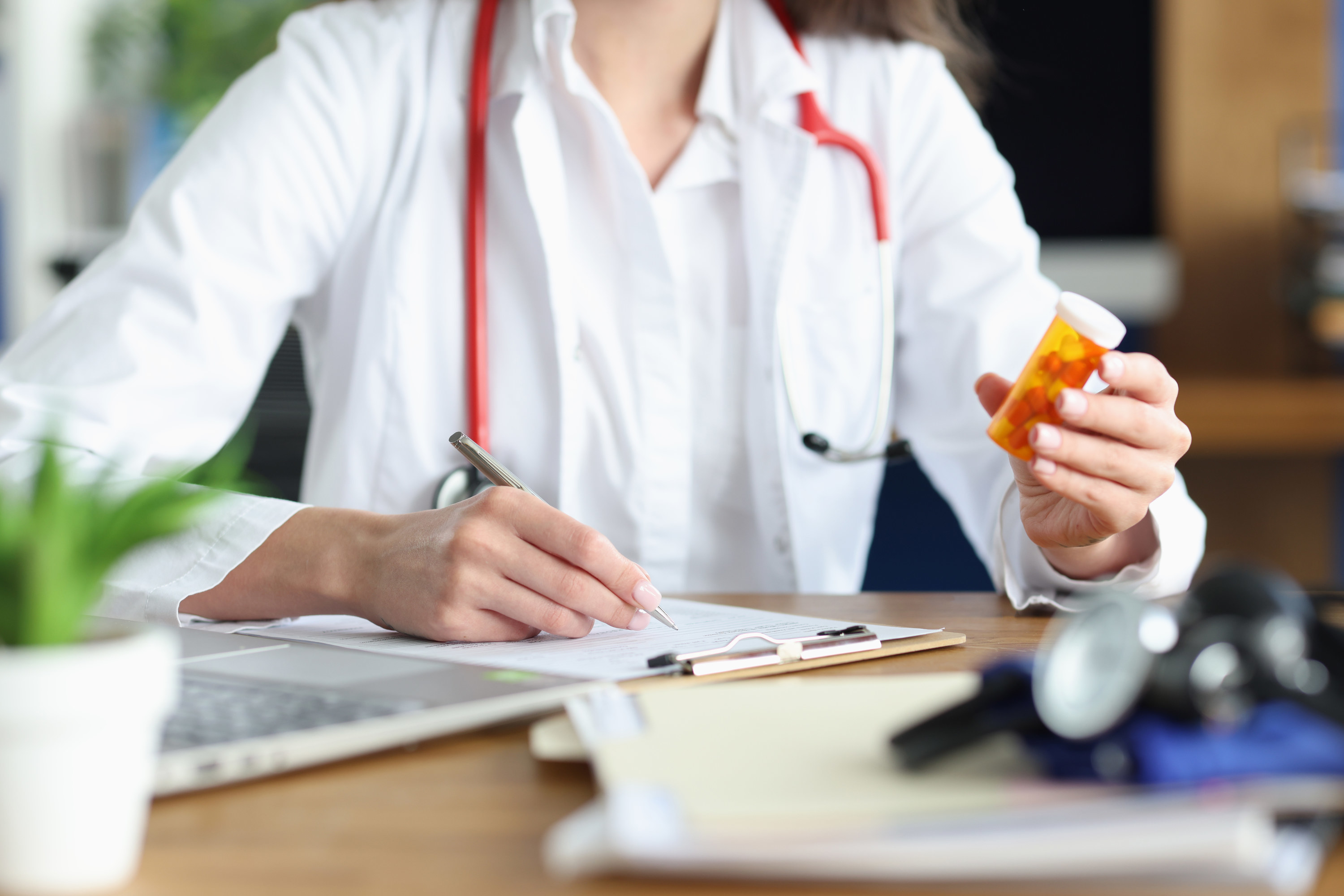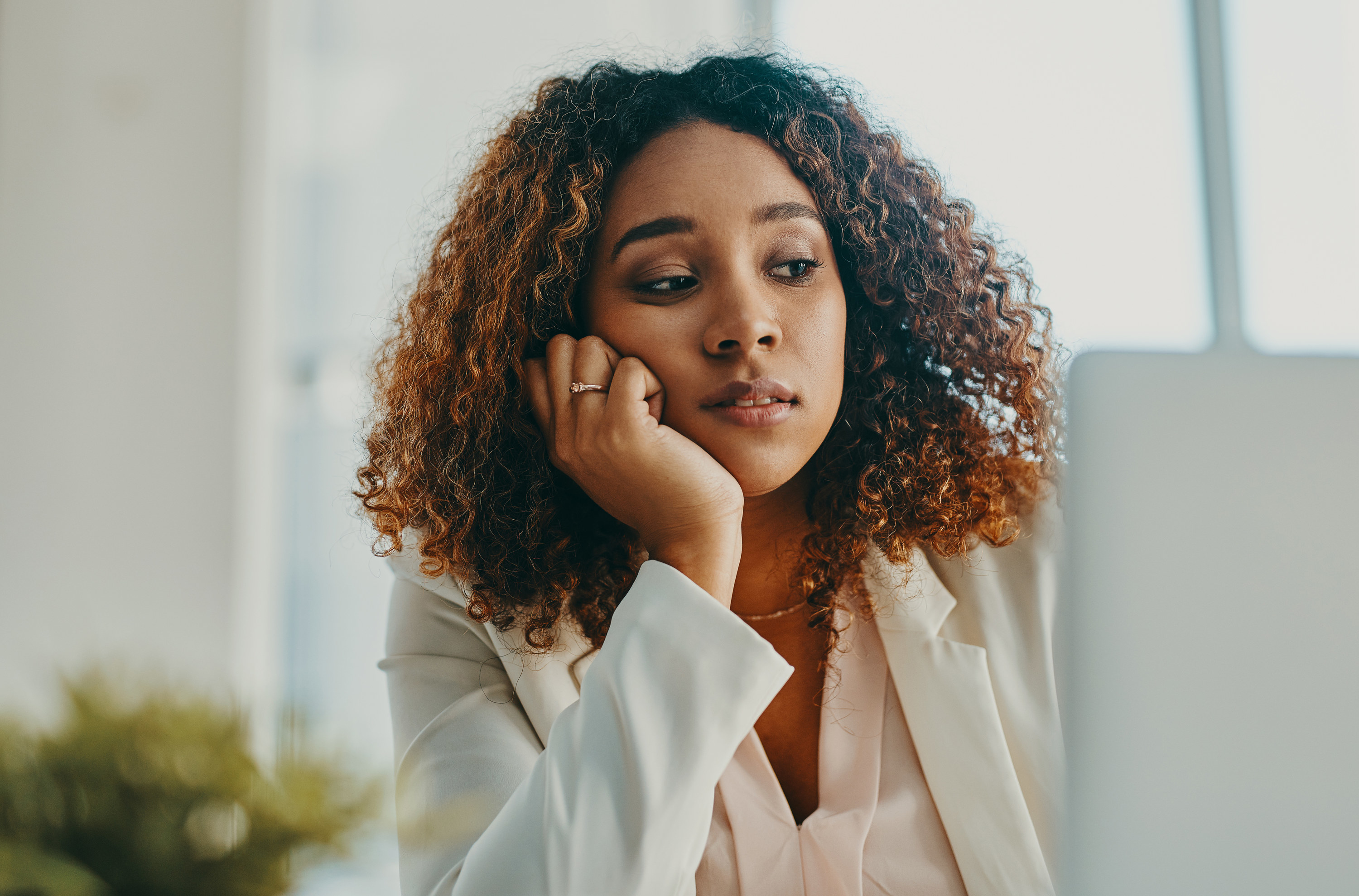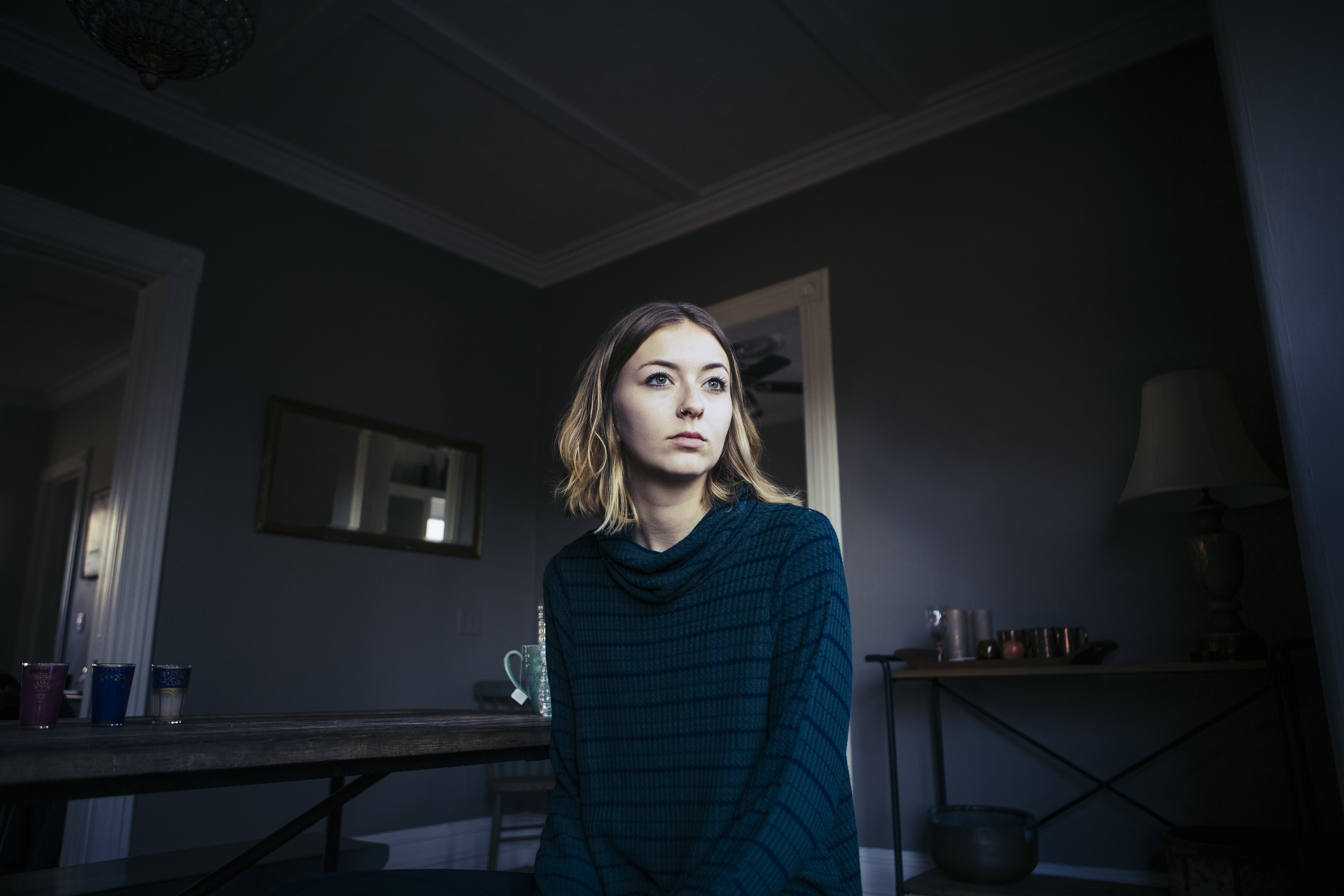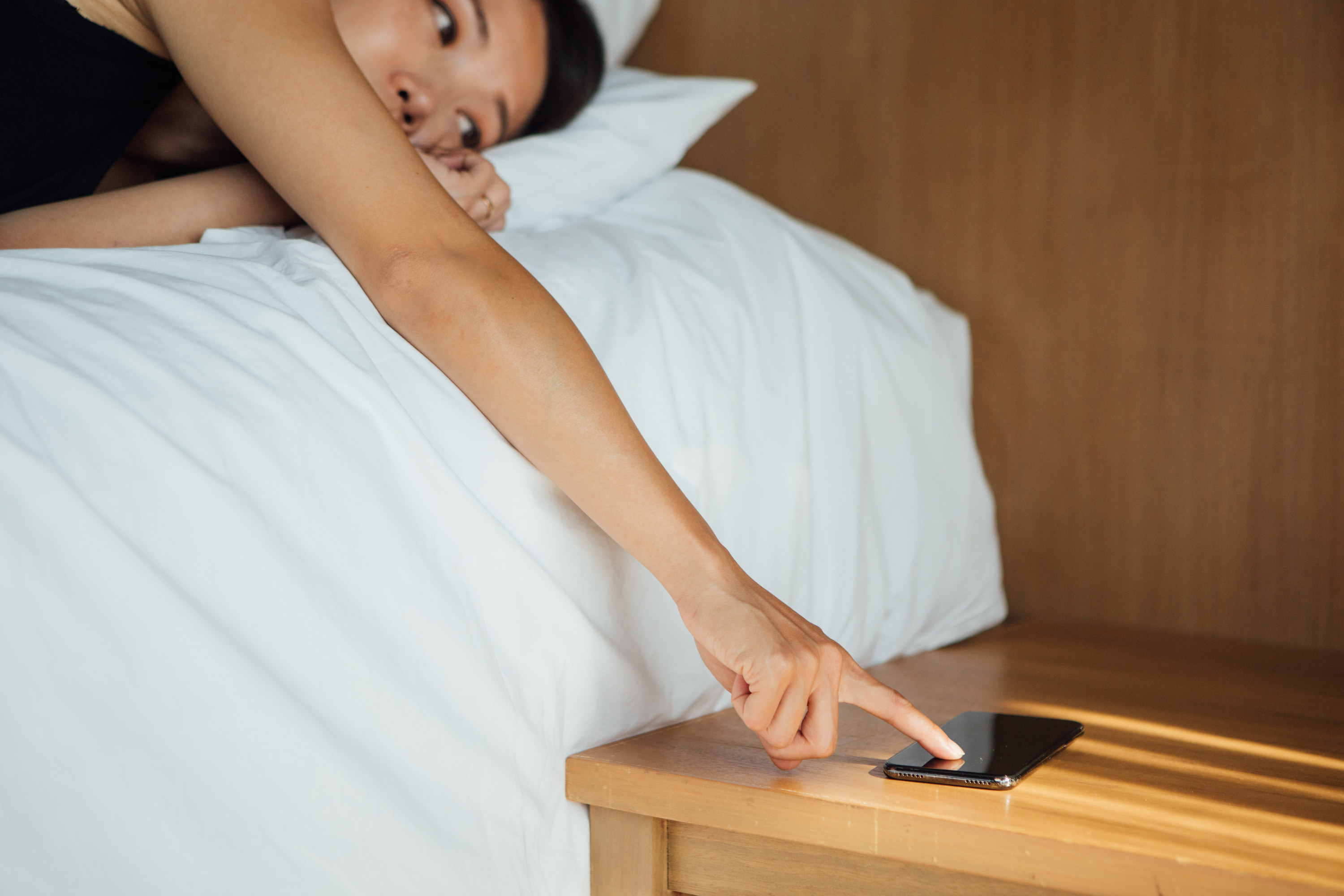Have you ever felt like your everyday life was extremely difficult for no apparent reason? Like, no matter how hard you tried to stay on top of chores, be on time for appointments, or even stay in contact with friends, you would begin to feel overwhelmed, and soon, everything would somehow fall by the wayside?
For some women, the above scenarios made them realize they had attention-deficit hyperactivity disorder, otherwise known as ADHD. But rather than being diagnosed as children — as men often are — women may not receive that diagnosis until adulthood.
And, unfortunately, this is pretty common. Since ADHD symptoms in women can be fairly different from those found in men (and haven't been studied as thoroughly), the average age range for a woman to get diagnosed is between their late 30s or early 40s, according to the American Psychological Association.
So to have a better understanding of how most women have realized they have ADHD as adults, Reddit user u/VisceralCheddar asked the r/AskWomen subreddit, "Women diagnosed with ADD/ADHD later in life, how did it make sense?"
And a lot of these responses are completely honest and vulnerable. Here are some of their answers below.
(Also: This article is not meant to replace seeing a medical professional or behavioral specialist. If you want to know more about ADHD, you can find further resources at the bottom of this post.)
1. "I found out accidentally at my general practitioner's appointment my senior year. We were talking about my antidepressants not working, and she stopped and pulled out this chart. She asked me like 6 questions out of 20 and put the chart down. She didn't need to finish asking me everything because it was painfully obvious I had ADD. I told my parents, and apparently I'd been diagnosed as a 5-year-old, but my parents didn't put me on medication because they didn't think I needed them."

2. "It took me four years to finish a three-year bachelor's degree, and it took me three years to finish a two-year master's degree. I quit my PhD halfway through. This is something I was deeply ashamed of. Dating is also hard for me because I have a hard time regulating my emotions. I always felt like there was something wrong with me, like everyone always knew what was up and I somehow missed it. Falling behind in my high-stress job led me to seek help, which led to my diagnosis at age 34. Everything started to make sense."
3. "I got diagnosed in my late 20s. I'm almost three weeks into medication, and I can already tell you that it has helped significantly with my emotions. The Adderall slows my brain down enough to give me time to think about and process my emotions. Also, the first day on medication, I just sat on the couch. That was it. No fidgeting, no thousands of thoughts running through my head. It felt like when you take a nice bath and submerge your entire head underwater."

4. "I got diagnosed this year. I'm in my early 20s. Recently, I remembered that I said to a friend in high school that I felt like I have a sheath or some layer over my brain that just never went away or dissolved, and I couldn't absorb information or function to the same extent as everyone else. I always knew; I just didn't know what it was. Now my entire childhood, relationships, and academics all make sense."
5. "I got attached to people way too easily and was a total people-pleaser. I was too much of an open book; I was so afraid that people would find me annoying or unlovable, so I overshared a lot. However, I had no idea all of this had to do with ADHD. It wasn't until I read about rejection-sensitive dysphoria did my diagnosis actually make sense to me. The general understanding of ADHD is so damagingly wrong, especially how it affects women. Going on medication was incredibly jarring; I had no idea it was actually possible to focus without training myself how to do it. It's weird discovering that basically every aspect of my being boils down to ADHD. It was a weird mix of having an identity crisis and imposter syndrome, but it also felt good to finally be able to work on myself."
6. "I would lose all interest in a job once I had 'mastered' it, and I was either quitting or hoping they’d fire me. This was the same with high school. It was too boring, so I didn't go. I was spending ALL of my money. I was not being aware of other people’s boundaries. I was hyper-focused on the huge realm of possibilities, to the point of not being able to make a decision. I was rarely finishing non-essential projects. I was also tired all the time, to the point where I’d call in sick so much, it put my job at risk. I was having so much pent-up energy that I’d always be bouncing my leg, picking at my cuticles, or biting my lips to the point of drawing blood."
"Once I was medicated, it all made sense. Like, you mean not everyone is a giant, unproductive ball of stress all the time? That I’m actually not an irresponsible failure of a mother because I struggle to stay engaged in a boring job? You mean my snappy temper and boundary-pushing aren’t because I’m just a giant butthead who doesn’t care about other people’s feelings? You mean that some things do actually come easier to other people?"

7. "It’s hard for me to even go to the grocery store. I can barely order food at a restaurant. I’ve changed my 'purpose in life' a million times. I want to do everything 'cause it all sounds like something I would love."
8. "I always said that I was 'bad at life.' I was very bright as a kid, so everyone viewed me as the stereotypical 'academic type' who is book smart but has no practical skills. It wasn’t a problem until adulthood, when I had less external structure and family support. Then I existed in a constant state of disorganization and lack of focus. I was constantly doing damage control on my finances, relationships, work, chores, and basically every part of my life."
9. "I got diagnosed in my last year of college. I had cycles of extreme motivation or no motivation at all, I couldn’t sit through lecture without doing something simultaneously either on my phone or laptop (I could still hear and absorb the lecture but only when I was multitasking; otherwise I zoned out). I felt like I could only be extremely low-performing (but not stressed) or extremely high-performing (but stressed all the time). With my friends, I was either all-in all the time or went off the grid for days or weeks. Eating was similarly all over the place: I either ate everything and anything in my path for a few days, and then I would eat maybe 1,000 calories over four days."

10. "The procrastination, money spending, inability to shut up, emotional mayhem, sleep disorder, eating disorders, depression. I really just thought I was a disappointment to all of humanity and a worthless scum. Turns out: I just really, really, really lack dopamine. It does explain why coffee never woke me up, though. So innocuous mystery solved, I guess."
11. "I am a transgender man, but I believe that being raised female as a child directly impacted the lack of diagnosis that is so common with young girls. I’ve noticed it most with procrastination and feelings of worthlessness when it comes to completing work or feeling passionate about anything for more than 10 minutes. I am very outgoing and talkative, and generally smart (?), so I think these signs were dismissed."
12. "I was diagnosed at 27. I realized I wasn't 'losing it' or having early memory loss issues. It explained why I react so strongly to things, why my emotions overwhelm me every time. It explained why I talk so much, why I have trouble knowing what to say in social situations, despite being painfully self-aware. The awareness always comes after I've already behaved weirdly or said something stupid. It explained why weekends and free days are so difficult when I have no schedule. It explained why I can't force myself to start things without external pressure. This applies to projects and hobbies; to work and school; and also to basic things at home like chores, eating, or taking care of myself."

Were you diagnosed with ADHD later in life? If yes, what made you get a diagnosis, and how did your life change after the fact? Tell us in the comments below.
Also, if you believe you may have ADHD or know someone who does, and are interested in learning more, a few resources have been provided below:
• Kaleidoscope Society: Kaleidoscope Society is an online community for and by women with ADHD.
• CHADD (Children and Adults with Attention-Deficit Hyperactivity Disorder): is a national nonprofit that helps people affected by ADHD.
However, make sure to also connect with a medical professional if you're interested in learning how you or a loved one can test for ADHD.
The National Alliance on Mental Illness helpline is 1-888-950-6264 (NAMI) and provides information and referral services; GoodTherapy.org is an association of mental health professionals from more than 25 countries who support efforts to reduce harm in therapy.

